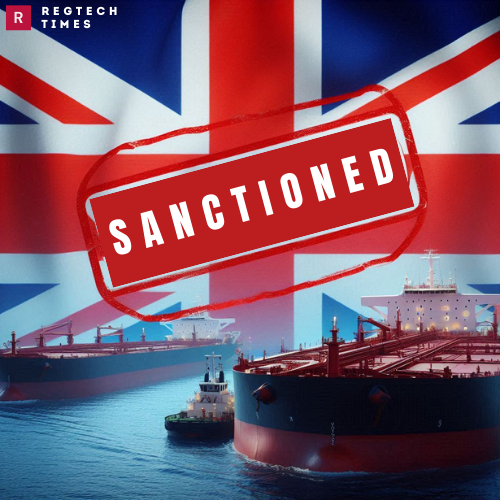The UK sanctions on Russian oil tankers mark a significant escalation in economic pressure against Moscow. Announced recently, these sanctions target a “shadow fleet” of ten Russian oil tankers, which have been crucial in evading Western restrictions on Russian oil exports. This latest move is part of the UK’s broader strategy to diminish Russia’s financial resources and disrupt its ability to fund its ongoing military campaign in Ukraine.
UK Sanctions and Their Strategic Impact
The UK sanctions are a pivotal development in the international effort to isolate Russia economically. These sanctions are designed to cut off key vessels used by Russia to bypass existing Western sanctions on oil exports. Among the ten tankers now subject to these UK sanctions are the Nikolay Zuyev, NS Asia, and Zaliv Aniva. Together, these ships have moved over $5 billion worth of Russian oil since the onset of the conflict. The UK government aims to undermine Russia’s shadow fleet by making it harder for these ships to operate, thereby straining Russia’s oil trade and funding capabilities.
David Lammy, the U.K. Foreign Secretary, said, “This government is committed to destabilizing the dark and illicit economic system that funds Putin’s war machine.” By targeting these tankers with the new UK sanctions, the government seeks to make the $8 billion investment Russia has made in maintaining its shadow fleet a costly misstep.
Broader Context and Diplomatic Reactions
The recent UK sanctions align with a coordinated international approach to pressure Russia. The European Union (EU), Group of Seven (G-7) countries, and the US have all imposed measures to limit Russia’s oil revenues. This includes the G-7’s price cap of $60 per barrel on Russian oil, aimed at reducing Russia’s income while avoiding severe disruptions in global oil markets.
The imposition of these new UK sanctions brings the total number of Russian ships sanctioned by the UK to 25. These vessels are now barred from docking at UK ports, further isolating Russia’s maritime trade routes. The announcement of these sanctions coincided with visits to Kyiv by UK Foreign Secretary David Lammy and US Secretary of State Antony Blinken, reflecting the West’s commitment to supporting Ukraine. Additionally, the day before, the UK, France, and Germany imposed new sanctions on Iran for supplying missiles to Russia, demonstrating a unified stance against Russian aggression.
International Responses and Market Implications
India, a major purchaser of Russian oil, remains a point of contention in the discussion of UK sanctions. Despite Western measures, India continues to import Russian oil, justifying its actions on national interest and market dynamics. This has led to diplomatic tensions, as seen in the recent discussions between Indian Prime Minister Narendra Modi and Ukrainian President Volodymyr Zelenskyy. Zelenskyy urged India to reconsider its stance on Russian oil purchases during Modi’s visit to Kyiv in August.
US Sanctions Devastate Russia’s Nuclear Financing; Bangladesh Struggles to Repay Interest
The UK sanctions have broader implications for the global oil market. By targeting the shadow fleet, the UK aims to disrupt Russia’s oil trade, but this could also lead to increased volatility in global oil prices. The reduction in Russian oil exports might create supply shortages or price fluctuations, affecting energy markets worldwide. Moreover, these sanctions put additional pressure on countries like India, which must balance their energy needs with geopolitical considerations.
The UK sanctions represent a strategic escalation in the economic campaign against Russia. By targeting key tankers in the shadow fleet, the UK aims to disrupt Russia’s ability to circumvent oil sanctions and fund its military operations. This move underscores the UK’s commitment to countering Russian aggression and supporting Ukraine’s struggle against the invasion.
As the conflict continues, the UK and its allies are expected to maintain and potentially intensify their sanctions regime. The effectiveness of these measures will depend on their enforcement and Russia’s ability to adapt its strategies. For now, the UK sanctions stand as a clear message of the West’s determination to weaken Russia’s economic foundations and support Ukraine in its ongoing conflict.


